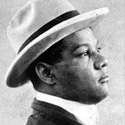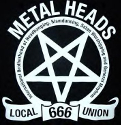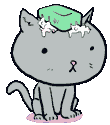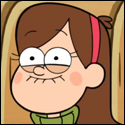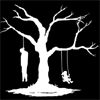|
Currently reading The Tale of Genji. I'm using Royall Tyler's translation. I really recommend the Penguin Classics Deluxe Edition; great footnotes explaining a lot of things, good summaries of characters at the beginning of every chapter (god knows you need it to remember everyone in this thing), and a great chronological summary in the back in case you forgot about some random thing that happened ten chapters ago. I'm a little more than 1/4th the way through; it's incredibly long. I'm just reading one chapter a night.
|
|
|
|

|
| # ? Apr 26, 2024 20:13 |
|
I keep wanting to pick that up but I just don't want to spend the $40 or whatever for the full version. Someday...
|
|
|
|
I just read Nip the Buds, Shoot the Kids and really enjoyed it. It was, however, one of the saddest books I've read in a while. Is A Personal Matter his go-to work? I'd like to read more by him but I'm not sure where to go from here. A Personal Matter seems interesting, because according to the introduction in Nip the Buds, Oe's son was actually born with part of his brain on the outside of his head, and the choice had to be made whether to leave it that way or fix it surgically and risk brain damage.
|
|
|
|
creamyhorror posted:I can see why Kitchen was a hit, if there was a dearth of fresh, inward-looking, unfettered and individualistic writing in Japan at the time. But no particular resonance with us, I guess. what do you recommend? Aside from Yoshimoto's stuff, the Japanese literature I've read has been fairly bombastic, which isn't really my thing. Please note that I've loved and then grown tied of Murakami.
|
|
|
|
I am OK posted:what do you recommend? Aside from Yoshimoto's stuff, the Japanese literature I've read has been fairly bombastic, which isn't really my thing. Please note that I've loved and then grown tied of Murakami.
|
|
|
|
I am OK posted:what do you recommend? Aside from Yoshimoto's stuff, the Japanese literature I've read has been fairly bombastic, which isn't really my thing. Please note that I've loved and then grown tied of Murakami. Actually I guess there's Ekuni Kaori who I think is somewhat similar to Yoshimoto Banana and I think at least one of her books has been translated. I personally am not a fan -- whereas Yoshimoto's writing seems sort of emotionally muted in a way that makes the rather silly plots of her stories seem less ridiculous, I find Ekuni's more sentimental writing to be harder to stomach despite less reliance on unrealistic coincidences or fantastical elements -- and don't like the content of her books. However her writing does deal with more humble human issues without the revelatory tone of personal confession that is common in much Japanese literature and on the level of prose I don't think she is a bad writer. mystes fucked around with this message at 18:09 on Jan 29, 2010 |
|
|
|
Paper Triangle posted:I just read Nip the Buds, Shoot the Kids and really enjoyed it. It was, however, one of the saddest books I've read in a while. Is A Personal Matter his go-to work? I'd like to read more by him but I'm not sure where to go from here. A Personal Matter is indeed the go-to work for Oe readers and the one most often (in my experience,) introduced in University Japanese Lit. Survey classes. It's a great book, I've not read it in a few years at this point but it stuck out as something I really enjoyed. Be prepared to be depressed/saddened by it too though. Someone else earlier in the thread mentioned Akutagawa. He and Tanizaki, in my opinion, write truly amazing short stories. The Akutagawa works that stick out for me are "In a Grove," (one of the short stories that makes up the inspiration for the film Rashomon,) and a particular favorite of mine, "Spinning Gears." (Originally Haguruma, also sometimes called "Cogs," depending on the translation.) For Tanizaki I always loved "Portrait of Shunkin," and the tongue-in-cheek essay "In Praise of Shadows." hallo spacedog fucked around with this message at 07:48 on Feb 1, 2010 |
|
|
|
tokyoakazukin posted:A Personal Matter is indeed the go-to work for Oe readers and the one most often (in my experience,) introduced in University Japanese Lit. Survey classes. It's a great book, I've not read it in a few years at this point but it stuck out as something I really enjoyed. Be prepared to be depressed/saddened by it too though. What I like about Oe, though, is that unlike other Japanese authors, he's a bit more of an optimist. A Personal Matter didn't leave me quite as depressed as I thought it would. Also, to the poster asking for less 'bombastic' authors, maybe try Ryu Murakami if you haven't? It's really loving weird at times, but Coin Locker Babies is a fascinating book. I really want to pick more of him up. I read him at the same time I read Haruki Murakami at for the first time, and in my mind I always thought of Ryu as Haruki on way more drugs.
|
|
|
|
That was me. I read In The Miso Soup and Piercing and enjoyed them, but didn't bother with any more Ryu Murakami as I thought those two were so similar in tone that I'd tire of them quickly (this is what happened with Murakami, mystes). I'm going to try Coin Locker Babies then, and I'm also going to buy Osamu Dazai's 'No Longer Human'. I'm all over anything that references Dostoyevsky.
|
|
|
|
I am OK posted:That was me. I read In The Miso Soup and Piercing and enjoyed them, but didn't bother with any more Ryu Murakami as I thought those two were so similar in tone that I'd tire of them quickly (this is what happened with Murakami, mystes). I'm going to try Coin Locker Babies then, and I'm also going to buy Osamu Dazai's 'No Longer Human'. I'm all over anything that references Dostoyevsky. In my opinion, Coin Locker Babies is Ryu Murakami's best work to date. I really really enjoyed it. For whatever reason, even though I've been studying the language, culture and history of Japan it took me several years to actually start reading their literature. Now that I have though, I can't stop. For those of you who are studying the language and want to break into reading books, many of the authors mentioned here are fairly easy to read in the native Japanese. Natsume Soseki wrote Ten Nights of Dreams which is broken into ten shorter stories, or dream narrations. The length as well as the style make it a fairly straight forward and easy read for those of us still learning the language. Ryunosuke Akutagawa was by far my favorite to read. The short stories of his are just fantastic. They all have a creepy element to them, not enough to call it horror, scary or frightening though. The creepy and uneasy vibes you pick up are less from the circumstances and much more based out of Akutagawa's character development. Most of the stories also have very morally vague characters and actions, that's half the fun of reading an Akutagawa story. These stories are slightly more difficult to read in the native language than Soseki's Dreams but the extra work really pays off. Some of his stories have already been mentioned but some other great ones have seemingly been left out. Rashomon and the Hellscreen have both been mentioned and for due reasons. The Nose, Dr. Ogata Ryosai: a Memorandum, Dragon: the Old Potter's Tale and The Spider's Thread are all great quick reads.
|
|
|
|
Philosopher King posted:I had to look up his name, but I hear he is really popular in Japan. It can best be described as The Most Dangerous Game crossed with The Running Man, sprinkled liberally with the disgruntlement and disaffection of the Japanese youth with their culture and government.
|
|
|
|
Chiming in that if youre gonna read Oe, read A Personal Matter.
|
|
|
|
moss piglet posted:Chiming in that if youre gonna read Oe, read A Personal Matter. Gotta agree with this. It's actually pretty easy to read, too.
|
|
|
|
I'm so glad I read trough this thread, there's a lot of must-reads I never heard about. Originally I came here to ask how I would be able to get through Oe's M/T... - now I'll just pass it by and start with A Personal Matter. One question: What is it with Haruki Murakami and his endless references to Western culture? Why does he need to do that, opening The windup bird chronicle with namedropping Rossini and cooking pasta, naming at least two novels with Western references - Kafka on the shore, Norwegian Wood. Is there something in Japanese culture which I know almost nothing about, that compels him to identify with something different? Or is it just a chosen style with little meaning?
|
|
|
|
Could just be he wants to crack the western market. A sign of the same phenomenon was Kazuo Ishiguro going on the record to say he avoids using "word-play and allusion" in his novels so they can be translated for other languages/cultures more easily. There's an interesting little piece on it here.
|
|
|
|
rasser posted:I'm so glad I read trough this thread, there's a lot of must-reads I never heard about. Originally I came here to ask how I would be able to get through Oe's M/T... - now I'll just pass it by and start with A Personal Matter.
|
|
|
|
Murakami gets his kicks translating Raymond Carver, so Id think the man likes American lit, legit.
|
|
|
|
WE RIDE posted:Not sure if he counts as Japanese since he's lived most of his life in England, but Kazuo Ishiguro is one of my favourite writers. His first two novels, A Pale View Of Hills and An Artist of the Floating World are both set in Japan and are both really good, the latter in particular. He also won the Booker Prize for his third book, The Remains of the Day, which is one of my all-time favourites (not set in Japan, though). Just read Never Let Me Go and found it very good, except for the stale beginning. He makes his characters age beautifully in it.
|
|
|
|
I really love both Ryu and Haruki Murakami. It's kind of odd that I only started reading Haruki Murakmi after I picked up After Dark, thinking it was by Ryu Murakami. I've also read the first two Ring books, which are pretty good despite being very different from the films.
|
|
|
|
Haruki Murakami: hands down my favorite author, Japanese or not. Can't get enough of him. His writing really speaks to me like no other author is able to (or at least his English-translations). For me, there's reading, and then there's reading Murakami. Kafka On The Shore and The Wind-Up Bird Chronicle are probably his two most popular works, alongside Norwegian Wood. South of The Border, West of the Sun and A Wild Sheep Chase are also great introductions to Murakami. Actually, read anything (and everything) he's written. Ryu Murakami: also fantastic. I've only read In The Miso Soup (good) and Almost Transparent Blue (amazing), but I'm really looking forward to reading more stuff by him. Pretty bizarre/macabre stuff, usually featuring less-than glamorous parts of society and gritty themes (i.e. prostitution, drug use, violence). Banana Yoshimoto: Read a short story collection of hers last year (Lizard?). Probably too chick-lit for my tastes, and not as talented either of the Murakamis, but not bad. Kobo Abe: I've only read The Box Man. Interesting novel, totally see the comparisons to Kafka. I'm really looking forward to reading some Mishima and Ishiguro soon. Japanese literature has probably accounted for 75%+ of the stuff I've been reading for the past couple years. Great genre. Market Fresh fucked around with this message at 06:02 on Feb 17, 2010 |
|
|
|
rasser posted:Is there something in Japanese culture which I know almost nothing about, that compels him to identify with something different? Or is it just a chosen style with little meaning? I don't think it is "foreign" or different to him though. He's a product of a time and place and social group that was interested in a very particular type of international culture. It's not the case for a lot of younger Japanese, but for Murakami, this is who he is. It's not necessarily an affected interest in foreign things or a bid at gaining Western fandom.
|
|
|
|
Also western culture, especially American, is pretty popular in Japan. If you're in Tokyo for any period of time you likely can and will see or hear as many references to the US as Murakami puts in his writing. Maybe you could make the argument that he's pointing to the saturation of Japan with western things, but more likely he just likes the stuff and is used to it and for whatever reason feels that it works better in his stories than similar Japanese things.
|
|
|
|
Agreed, I don't think his references are contrived. The connections to Western culture just sort of permeate his work like they're a natural product of his consciousness. Usually a fairly disconnected narrator, when he's making these references you get the impression of a more personal and direct communication of his personality. It almost seems compulsive at times. Same with his references to music and literature in general. Its an expression of himself rather than a contrived device to get an in on the western market. At first it bothered me and I felt like it would date his work and make it less accessible to future generations, especially the pop culture references. Once I got used to it, it bothered me less. Also, he includes a healthy does of references to classics that won't go out of style.
|
|
|
|
Vicious Owl posted:Agreed, I don't think his references are contrived. I swear Murakami is just a playful retarded cousin of Mishima: William T. Vollmann, speaking to the PEN center posted:About [Mishima's] death, or at least about its supposed inevitability, a little more should be said. In Sun and Steel he bitterly complains about the fact that men cannot objectify themselves, and from the context it’s evident that he means objectify their bodies as women can. “He can only be objectified through the supreme action—which is, I suppose, the moment of death, the moment when, even without being seen, the fiction of being seen and the beauty of the object are permitted. Of such is the beauty of the suicide squad.” Mishima wrote those words in that languorously white house of his, which might be considered a little peculiar for the abode of a Japanese nationalist given its urns, its Greekish statues, and its European horoscope mosaic, that house which serenely bides and forebodes behind its white wall. If anything, it makes me think of the residence of the minister Kuruhara in the second volume of the tetralogy, Runaway Horses, whom Isao stabs to death in punishment for the crime of sacrilege. Kuruhara is, among other things, another Honda. The body hates the words (so, at least, the self-hating words say). The body freely, guiltlessly kills and copulates, marches, overthrows, makes history. It can do everything. But what’s it made of? The white ants are already eating it. When Mishima, naked but for his loincloth, sits on the tatami mat for yet another photograph (if you knew him only by this image, you wouldn’t suspect that he lives amid French engravings of nineteenth-century experimental balloons), when Mishima leans on the staff of his sheathed sword, his face, which to others, including himself, may evince resolution, to me betrays resignation, even vacancy, as if it cannot escape its own clay. Yukio Mishima, talking about the white ants Vollmann mentions posted:In the average person, I imagine, the body precedes language. In my case, words came first of all; then . . . came the flesh. It was already . . . sadly wasted by words. First comes the pillar of white wood, then the white ants that feed on it. But for me, the white ants were there from the start, and the pillar of plain wood emerged tardily, already half eaten away. z0031 posted:That's a pretty good way of putting it. I really think, though, that he had women issues just going so far off Spring Snow and what I've read about the plot of Forbidden Colors. I had to check, but apparently it wasn't even clear if he was gay or not? I'm sort of assuming he based Kiyoaki largely on himself. Mishima never thought about sex the way most people do. It was always bound up in his severe issues with beauty and aesthetics and their tyrannical presence in his life. His hatred of women is intimately tied up with their style of passivity and their kind of beauty, which he does not like. But yeah, he gay: http://www.youtube.com/watch?v=IeMt2Rjo-yY#t=1m00s Love Mishima. Mishima rules. Books like Mishima's books are the reason I read. Each one exists in a space that was not there before the book was written, and yet those spaces are not safely separate from our world like Murakami's are, but set right up against it, very much eager to invade. raton fucked around with this message at 11:13 on Feb 21, 2010 |
|
|
|
Sheep-Goats posted:Love Mishima. Mishima rules. Books like Mishima's books are the reason I read. Each one exists in a space that was not there before the book was written, and yet those spaces are not safely separate from our world like Murakami's are, but set right up against it, very much eager to invade. I actually just started Kinkakuji in the Japanese. Have you read his stuff in the original? Do you think he's particularly difficult to read in Japanese or no? It's been slow going so far but my reading skills aren't particularly strong yet anyway.
|
|
|
|
I finally finished The Tale of Genji last week. It was really slow-going (took me 2 months to read), but overall it was a pretty interesting story. There's really no plot, but the characters were fun to watch slowly grow up. What was most amazing was how internally consistent it manages to be despite the huge number of characters. It was also a nice introduction to Heian period, which I knew nothing about before reading it. I bought The Pillow Book by Sei Shōnagon, but is there any other Heian period literature that people would recommend? Is there anything in the more modern canon that's similar to Genji, or set in the same time period?
|
|
|
|
Pfirti86 posted:I finally finished The Tale of Genji last week. It was really slow-going (took me 2 months to read), but overall it was a pretty interesting story. There's really no plot, but the characters were fun to watch slowly grow up. What was most amazing was how internally consistent it manages to be despite the huge number of characters. It was also a nice introduction to Heian period, which I knew nothing about before reading it. I bought The Pillow Book by Sei Shōnagon, but is there any other Heian period literature that people would recommend? Is there anything in the more modern canon that's similar to Genji, or set in the same time period? Everytime one of these threads comes up, I inevitably end up recommending the Tale of Heike to someone. I have never really liked Genji or Heian-era literature in general, and classical was the most boring year of Japanese that I ever took in my life. That said, I have always quite enjoyed Heike. It's similar to Genji in that it has a large cast of interesting aristocratic characters, only a lot more exciting (at least to me) because it is about war. Might be worth a look for you. I'm not sure which translation I read last but there's got to be a few out there... in general the newer ones are probably better. You might also want to read the abridged version first before trying to delve into the whole thing, although if you made it through Genji of all things you might be okay.
|
|
|
|
Question for posters itt: I assume some people are reading the stuff directly in Japanese, are there any serious hang-ups or problems with English translations? I've heard that Japanese wordplay can be next-to-impossible to translate sometimes, but I'm about ready to start a new novel and it occurs to me that I haven't ever touched a Japanese text. Seems like as good a choice as any, assuming I can avoid reading pages of foot-notes. Are there any Japanese authors who "translate well" into English? Obviously Murakami's stuff has been very popular in the USA, so that seems like a safe place to start, but everything I've read about Mishima itt has sounded very interesting.
|
|
|
|
JustNoSkill posted:Question for posters itt: I assume some people are reading the stuff directly in Japanese, are there any serious hang-ups or problems with English translations? I've heard that Japanese wordplay can be next-to-impossible to translate sometimes, but I'm about ready to start a new novel and it occurs to me that I haven't ever touched a Japanese text. Seems like as good a choice as any, assuming I can avoid reading pages of foot-notes. I've been under the impression that everyone in this thread has been talking about translations of Japanese works. If you pick up any modern Japanese novel or short story collection you won't really have to deal with footnotes. If you're worried about awkward phrasing in English of a passage that may be beautiful in Japanese, well that's just the nature of the beast that is translation and would be true of pretty much any language. If you're worried about references to Japanese cultural things that you don't know about, I wouldn't really worry about that either. I've seen translators handle it in a couple ways. One seems to be just to name the thing in Japanese or sort of equivalent English and leave it up to the reader to look stuff up if they want. That's pretty much the best way, personally. Sometimes, though, the translators will replace the name of whatever the thing is with an awkward and forced-feeling description. As an example I'm making up right now, 'they picked up their chopsticks and began eating their sushi, slices of raw fish on top of packed, lightly-vinegared rice'. The older the Japanese work, the more likely you're going to run into difficult or strange-sounding English. But for anything written in the last 100 years I don't think you'd have any problems just reading the translation like an English work.
|
|
|
|
I'm actually reading tale of Heike in Japanese and I'd say it's definitely worth a read.
|
|
|
|
z0331 posted:Jun'ichiro Tanizaki Wow, I hadn't realized this! I am about halfway through Sasameyuki on recommendation from a friend and had no idea that the rest of his work is very different in style, as it is my first encounter with Tanizaki. I am really loving it though, so I'm a bit apprehensive now of reading more of his work. Sasameyuki has the characteristic carefully measured quietude of classic Japanese literature and is most memorable, to me, for its painstaking descriptions of ordinary moments in life set against largely unsaid emotional undertones, evoking an overall slow yet relentless sense of melancholy. The themes explored will be familiar to any watcher of classic Japanese cinema: the evolution of the place of the family and other traditions, the decline of the old ways, the inevitability of change, and the sadness at the passing of a beautiful time. One of the Amazon reviews describes the book as an epic of inaction - trying to figure out what to wear, and crying for no reason at the same time every afternoon.
|
|
|
|
Pablo Bluth posted:Previously when this topic came up, I mentioned a desire to read Eiji Yoshikawa's Musashi: An Epic Novel of the Samurai Era. I still haven't acquired a copy, but I recall a couple of other posters agreed it was a worthwhile book. I have a hard cover copy of Musashi that I haven't had the opportunity to crack open just yet. It's kind of intimidating because it's such a long book (900+ pages) but one day I'm going to tackle that beast. One day. 
|
|
|
|
JustNoSkill posted:Question for posters itt: I assume some people are reading the stuff directly in Japanese, are there any serious hang-ups or problems with English translations? I've heard that Japanese wordplay can be next-to-impossible to translate sometimes, but I'm about ready to start a new novel and it occurs to me that I haven't ever touched a Japanese text. Seems like as good a choice as any, assuming I can avoid reading pages of foot-notes. I suspect that most people in here are reading translated version. You're always going to lose out on some wordplay and cultural references, but really, if it's a strong story then it's a strong story, and what makes them strong is their universal appeal across all of humanity. The core of the book will always survive and you'll have no problems appreciating this,.
|
|
|
|
Murakami and Mishima are both awesome. "After the Banquet" is my personal favorite Mishima book. If anyone's really interested in him, the film "Mishima: A Life in 4 Chapters" is pretty great, as it's a mixture of a biographical film and short interpretations of 3 of his stories (Temple of the Golden Pavilion, Wild Horses, Kyoko's House) Murakami, well, I'm still waiting on the English translation of 1Q84...
|
|
|
|
I am OK posted:I suspect that most people in here are reading translated version. You're always going to lose out on some wordplay and cultural references, but really, if it's a strong story then it's a strong story, and what makes them strong is their universal appeal across all of humanity. The core of the book will always survive and you'll have no problems appreciating this,. Additionally... with a few pop culture exceptions, Japanese literature isn't nearly popular enough in the English-speaking world that translations of just anything will sell enough to justify publication. Meaning that English readers for the most part automatically get to avoid the bulk of crappy Japanese airport fiction equivalents. Most of what's available here are things which were already very critically acclaimed or have survived the test of time as memorable works.
|
|
|
|
hallo spacedog posted:Meaning that English readers for the most part automatically get to avoid the bulk of crappy Japanese airport fiction equivalents.  Edit: To clarify, it's true that there is some filtering going on but the actual situation is that what gets translated is great works and horrible crap with little in between. Luckily for everyone's sanity you're probably not even aware of the horrible crap category. There are a few exceptions such as Haruki Murakami, of course. mystes fucked around with this message at 20:15 on Apr 2, 2010 |
|
|
|
I'm not sure if we're supposed to be talking about older stuff here, but I'm kind of surprised Yoko Ogawa hasn't been mentioned here. The Housekeeper and the Professor was translated (very well) back in February of last year and it was a great read. Her stuff is generally pretty short and is easy to read through, with a calm, introspective feel to it. I would definitely recommend her.
|
|
|
|
Macrame_God posted:I have a hard cover copy of Musashi that I haven't had the opportunity to crack open just yet. It's kind of intimidating because it's such a long book (900+ pages) but one day I'm going to tackle that beast. I'm about 1/3 the way through right now. Just start reading it. It's absolutely delightful to read and it takes no time to build up to an interesting story. It's very episodic, it was originally serialized in a newspaper.
|
|
|
|
z0331 posted:Ryu Murakami He also wrote Audition, which the movie is based on. I've read a couple of his books and they are always interesting and generally pretty horrific. He's got a bit of a Palanihuk vibe (I don't know if that's a dirty word here, if only for the subject matter. I'd recommend Almost Transparent Blue, but probably skip In the Miso Soup, which has little going for it other than lurid violence.
|
|
|
|

|
| # ? Apr 26, 2024 20:13 |
|
Splaa posted:...skip In the Miso Soup, which has little going for it other than lurid violence. Seconding this, I got it in a book trade about 2 years ago and just found it completely a worthless read. I couldn't even believe it was the same author as Almost Transparent Blue.
|
|
|





